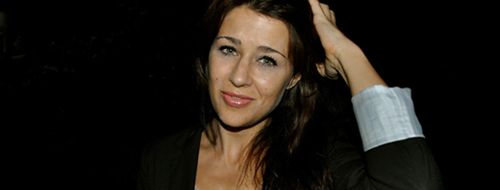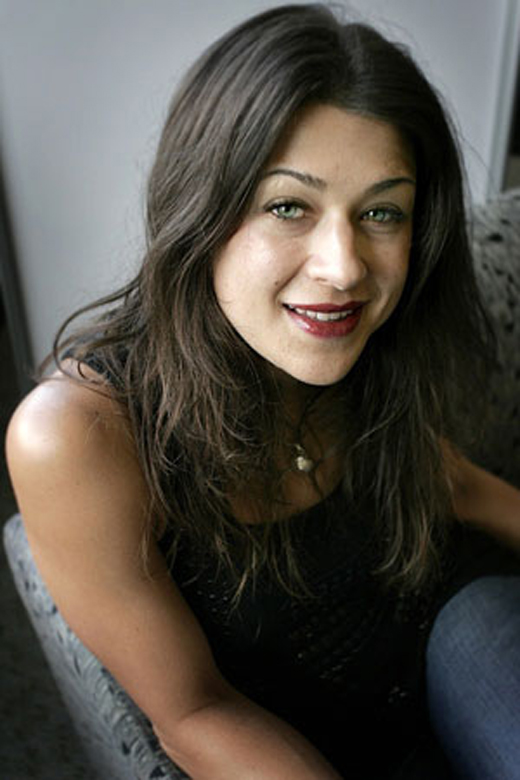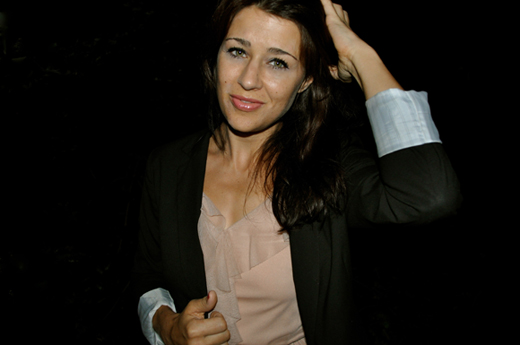 [Originally posted on Forbes.]
[Originally posted on Forbes.]
If ever there was a more important battle cry to hear in life and in work, it would be Cory’s own personal mantra: “[approach life as] passionate and always in beta.” Inherent in her words, and in her own background, is the idea that taking risks should be the rule and not the exception.
Not only is this apt advice coming from the lead on innovations and strategic partnerships at one of the country’s oldest and most reputable publications (The Washington Post), but it is also important that we women do not prove the headlines right when it comes to the supposed risk aversion we have embedded in our XX chromosomes.
Meeting Cory through the Online News Association during the 2008 election has lead to some amazing collaborations and constant inspiration. Secretly (but not so secretly now), I’ve always wanted to know how she got to where she is and how she accomplishes so much. It is a pretty incredible journey, so let’s ride.

Photo By: Genevieve Alvarez
Background Information:
Name: Cory Tolbert Haik
Hometown: Born in Houston, Texas, but spent most of my formative years in New Orleans, Lousiana.
Current City: Just outside of Washington, DC
Employer & Job Title: The Washington Post Executive Producer, News Innovations and Strategic Projects
Educational Background: Masters in Communication Theory, University of New Orleans
Previous Work Experience: Assistant Managing Editor, Seattletimes.com Managing Editor, NOLA.com, site for the Times-Picayune newspaper in New Orleans, LA
Only 15% of senior managers in all industries are women. As someone actively defying this statistic, how did you differentiate yourself and become a leader in the journalism field?
I’m not sure I ever set it out as a goal, per se. I’ve just always been good at figuring out where I could contribute and then going for it intensely. And in all my jobs to date, I’ve ended up in senior leadership roles. I find people, projects and generally creative ideas that speak to me, that speak to what I feel like we should be doing as an organization, and then try to make it all happen. I became a leader by bringing one person at a time into something I felt passionate about and by showing success on the other end, with them.
You were the managing editor at NOLA.com in New Orleans during Hurricane Katrina, which earned you and your colleagues a Pulitzer prize. What approach did you take as an editor during that time to cover the storm? And, did you face any adversity during the process?
I became the Managing Editor after Katrina. After we won the Pulitzers. During the storm, I was made an official acting manager of all the producers that worked 24/7 for weeks on end. And I was one of those producers. The adversity? Well, not to sound too sorry for myself, but I was nursing my 6th-month-old baby and trying to help my 9-year-old daughter cope with the losses we weren’t entirely certain of as yet. We lived with my husbands parents for 5 months until we could get back into the city. And I did this while working around the clock and helping lead a digital production staff that all faced similar personal tragedy. Our site never went down. Our traffic and community connections via our site forums (2005 = no social media) were never stronger. The approach I took was simple: survive together. And we all did, basically via instant messenger until we were settled back in the city months later.
Did you have any female role models / mentors when growing up?
Certain female news anchors from the 80s and cool kids like MTV’s VJ Kennedy (remember “Alternative Nation?”). As a little girl I dreamt about asking grown-ups good questions and even practiced asking the difficult ones in the mirror. Still practicing. Another woman role model was my mother, Dixie. She could run a small country. So if you combine those things, asking good questions and the ability to organize and execute on a large scale, those are pretty great things to be inspired by and aim for.
Do you currently have any female role models / mentors?
Jennifer Sizemore, Vice President & Editor-in-Chief, MSNBC. I am pretty sure she thinks we’re just friends. But I sort of want to be her. I don’t want her job. But she’s just so boss, if you know what I mean. And not because she runs everything. But because she makes it look easy and has a great sense of humor about it all.
Who [and what] has influenced you most?
Depends on what years we are talking about. . ..
Early years: My father, the computer engineer
1996: The birth of my first daughter and the mainstream adoption of the Internet
1999: My then-editor, Jon Donley (A digital maverick much ahead of his time and thus misunderstood for good reason)
2005: The birth of my second daughter and Hurricane Katrina
Now-ish: Watching female CEOs like Carol Bartz from a distance and hoping one day I get to have a conversation with them
What drives you? What motivates you to get out of bed, stay late and / or work on the weekends?
I have always been a self-starter. So I have never had any problems with rising to the occasion. But the key really is the occasion. I need to really believe in and feel passionate about what I am working on or the job I am doing. So that can be challenging because we are all tasked with things that at times do not feel like they meet our professional Utopian criteria. Journalists are admittedly overly serious about this. So I sometimes have to keep myself in check that way. (IE Remembering that working through a back-end tech issue for an iPad app on a Saturday night while at a dinner function will actually move the ball forward).
What key personal characteristics do you see in yourself that you’ve found especially critical in achieving success?
It’s drive more than anything. There is something inside of me that just doesn’t give up. I mean, I give up on things that won’t work, but I’m always looking for a third way because I am confident it exists. I’m only wedded to making things happen. So it’s not always the how. It’s the fact that I have to get there.
How would you describe your approach to the world?
Passionate and always in beta. I obsessively survey my landscape and the path I’m going down. You come to a lot of forks in the road. I believe in making choices and I believe, for the most part, it’s all developmental. Meaning that sometimes we pick the path that seemed right at the time. Or right for the 20 miles ahead that we could see. But then we go down that path and it might not work out. So one has to get to the next fork and choose again. I’m not a real turn-back-around gal. I just try to get to the next fork quickly. Like when you deal with live news and build products for users with untested technologies. It’s a game of refactoring to get closer to your goal, which of course can be subject to change. Make a choice, pay attention on the path, look ahead as far you can, anticipate your next opportunity to choose. But don’t apologize unless you’ve really screwed it up. Because generally there is an opportunity to choose again and make it different and better and more meaningful. Journalism has always been a process that way, if you think about it.
What magazines, books, newspapers, and/or information sources do you study?
Is it wrong that I spend hours on YouTube learning how to do the Dougie? Is that what you were asking?
Anything that speaks Marshall McLuhan or “1984” for the 21st century. Like Gary Shteyngart’s “Super Sad True Love Story” or works like Nicholas Carr’s “The Shallows.” On sites, I love The Awl. The right web production for right now: all blog-like, tags and snark. HuffPo because the resources they’ve thrown into digital development intrigue and impress me. The New York Times because I can’t live without the Modern Love column, Virginia Heffernan and, say what you will, Bill Keller writing again. The UK’s Guardian continues to blow my mind with its forward thinking interactives and engagement efforts. Wired magazine. Fast Company. Flipboard for iPad is just brilliant. My Chrome browser and the myriad of apps I continue to explore. And you know I’m going to say The Washington Post, right? And not because I’m towing the line. But have you read any of our national political coverage lately?
What values are you committed to?
Doing digital journalism that has impact. That is lasting and remarkable and that people remember. I feel strongly that part of my role is helping my colleagues believe that we can do good work in our disruptive and ephemeral environments. And that can be a hard thing to believe sometimes. It is chaotic and it moves so quickly. I worry at times that users don’t really read news. How many times do you click through a Tweet, go beyond a headline, get to page two of a story? This is the existential crisis I find myself in. I sometimes worry that the digital magic I’ve championed the last decade isn’t always good for people. Another digital stream? Like I need a hole in my head. But The Washington Post. That’s an American Institution making journalism that enables democracy and ones understanding of the world. At least that’s what I believe. So I am committed to helping make sure important storytelling thrives and develops along with the platforms that emerge. I am committed to ensuring that users get a product that helps them.
What, if any, distinct traits have you seen fellow female coworkers bring to the workplace? Do you yourself exhibit them? (Why or why not?)
If I can offer a thought on a mistake. I see fellow females bring too much emotion into the workplace — and this has included me. I’ve been blessed (?) with the ability to be in touch with my feelings. But I have learned over time how to parse them and package them and present them. If you are human, you cry. I advise you to find the ladies room, though. Not because crying is wrong. I cry all the time. I personally think that’s part of being fearless. I just think you need to find some space, have your drama, make a list of what you are going to do about it, then come back to the table with a solution.
What was your first job? What did it teach you that remains with you today?
I was a waitress. It taught me to listen. Not just to words, but to body language and nuance. What do people want, what do people need that I can facilitate? It was my job to anticipate that and find solutions. It also taught me to be a good manager. Not a single person in that restaurant reported to me. But I got them all to do things. The bartender who knew how I needed the whiskey sours for my regular Tuesday couple, the back waitstaff that I desperately needed to pull me out of the weeds. The frustrated cooks who slaved in the heat for low wages and I needed to move my meals along with special requests at the pace of my customers, not theirs. I love being part of a team that gets the job done. I learned what success and satisfaction felt like. And I fell in love with making it happen.
What’s the worst business advice you’ve ever received?
Two things: I once interviewed for a radio producer position and the hiring manager stopped the interview midway and insisted that I apply for an opening in sales. He said I was such a good listener and that I’d be excellent cold calling potential clients. If I had taken his advice, I would tell you this would have been the worst advice I could have ever received. So the actual worst piece of advice I have gotten is when someone once inferred that punching the clock after one has a baby shows that you are not interested in your career future. This is just not true.
What have been the main challenges have you had to overcome in your career? Has gender and / or being a mom been played a role?
For the most part I’ve been lucky that all of my bosses and co-workers have understood my family commitments. Smart people have written books on the difficulties so I’ll not go on about that. It’s just hard. Outside of being a mother, being a woman has not really been challenging for me career-wise. Not to be all braggy, but I’ve been promoted over men. It was just the right choice (okay, that sounds braggy). I am grateful to have my career at a time where so much of the hard work on that front has been done. I work at a company with a female publisher, Katharine Weymouth. So that feels awesome. And she is so very cool, for the record.
What key mistakes have you made in your career? What were some of the key lessons learned?
Not taking details seriously enough or just blowing them off. Diligence can be difficult for me. Because I want to get at goal so badly. Classic cart before the horse sorts of conundrums. My general excuse is that I am a creative — just look how amazingly awesome my project is! Doesn’t always cut it. At the end of day, I better have done the homework, the busy work, the make work. Because whether we like it or not, journalism is a business and I am trying to run something successful within that structure.
What three pieces of advice would you offer young women looking to create a career similar to yours?
Whatever you are doing, figure out an angle that feels like it’s tied to your end goal. That can go on your resume. (See above spin on my waitress job).
Don’t confuse social media for real life relationships. Get to know people in your field, in person.
Get up early and read the news.
To keep up with Cory, follow her @CoryHaik.

Photo By: Maygan Melancon
Tags: balance, cory haik, equal, equality, fairness, forbes, ForbesWoman, JESS3, lesliebradshaw, More Seats, new orleans, nola, washington post
Join the Conversation